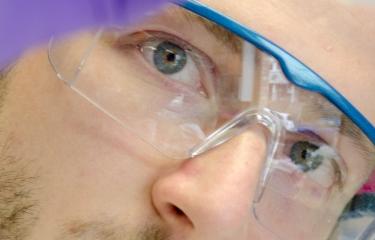-
Question Réponse | 10.07.2017
Rappels - Je ne peux pas faire le rappel tout de suite (raisons de santé) : suis-je encore immunisé ? Quel est le délai à ne pas dépasser ?
Il n’y a pas de délai fixé, le rappel pourra être fait à tout moment lorsque votre état de santé le permettra. Votre médecin traitant sera à même d’en juger.
-
Question Réponse | 10.07.2017
Rappels - J’ai oublié de faire en temps voulu le rappel pour tel ou tel vaccin ? Dois-je recommencer la vaccination au début ?
Il n’y a pas lieu de recommencer la vaccination depuis le début, mais il convient de faire le rappel sans tarder.
-
Question Réponse | 10.07.2017
Schéma vaccinal - Combien faut-il d’injections pour tel ou tel vaccin ?
Le schéma vaccinal est indiqué pour chaque vaccin sur le site du Centre médical de l'Institut Pasteur, dans la rubrique Vaccinations.
-
Question Réponse | 10.07.2017
Je pars en voyage, quelles vaccinations faut-il faire, quelles précautions sanitaires faut-il prendre ?
Pour chaque pays, des informations sur les vaccinations et les autres précautions sanitaires recommandées aux voyageurs sont accessibles sur le site du Centre médical de l'Institut Pasteur.Nous vous conseillons également de consulter votre médecin traitant, ou de vous adresser à une consultation spécialisée de conseils aux voyageurs ; une telle consultation est à votre disposition sur rendez-vous...
-
Question Réponse | 10.07.2017
Santé – Je cherche des informations concernant une maladie
Vous pouvez consulter les fiches maladies sur notre site web.
-
Question Réponse | 10.07.2017
Maladies rares - maladies orphelines : J’ai une maladie rare, je cherche des informations et des conseils.
Vous trouverez des informations sur le site d’Orphanet.
-
Question Réponse | 10.07.2017
Allergies et pollens. Diffusez-vous des relevés de comptage de pollen ou des prévisions de pollinisation ? Si oui, à quelle fréquence, sur quel support, et comment peut-on y avoir accès ?
Vous pouvez consulter le site du Réseau national de surveillance aérobiologique (RNSA). Ce réseau a pour objet principal l’étude du contenu de l’air en particules biologiques pouvant avoir une incidence sur le risque allergique pour la population. C’est-à-dire l’étude du contenu de l’air en pollens et en moisissures ainsi que le recueil des données cliniques associées.
-
Question Réponse | 10.07.2017
Allergies (Maladies allergiques)
Une consultation d’allergologie est à votre disposition sur rendez-vous au Centre Médical de l’Institut Pasteur.
-
Question Réponse | 10.07.2017
Contact téléphonique - Je vais partir en voyage et je voudrais savoir quels vaccins pratiquer mais je n’arrive pas à vous joindre par téléphone.
Des informations sur les précautions sanitaires recommandées aux voyageurs par pays sont accessibles sur notre site.
-
Question Réponse | 10.07.2017
Voyages fréquents mais escales brèves (personnel navigant). Le traitement antipaludique est-il nécessaire ?
Cette question relève d’une consultation spécialisée de conseils aux voyageurs ; une telle consultation est à votre disposition sur rendez-vous au Centre médical de l’Institut Pasteur.



